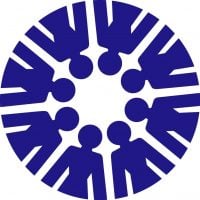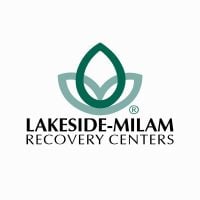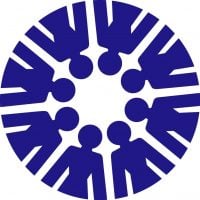Bowen Recovery Center
Drug Rehab Center in Lynnwood, Washington
- Opioid Addiction
- Dual Diagnosis
- Drug Addiction
- Alcoholism
Bowen Recovery Center offers evidence-based, individualized addiction and substance abuse treatments, including specialized services, and has received numerous accreditations and awards, while also providing education opportunities.
Multiple patients have reported Bowen Recovery Center as permanently closed.
Research other rehabs in Lynnwood, Washington, or get help finding an open facility.
Our experts will find you an alternative facility.
(888) 674-0062 24/7 Free, Confidential, Expert HotlineAbout Bowen Recovery Center in Washington
Bowen Recovery Center in Lynnwood, Washington provides Evidence-Based practices and values-driven recovery services to individuals and families of all ages. Since 2000, Bowen Recovery Center has been educating, advocating and developing programming to best meet the needs of those individuals struggling with addiction and substance use disorder. Through providing outpatient and intensive outpatient treatment, Bowen Recovery Center has formed a compassionate and experienced team that is dedicated to helping individuals and families receive the right treatment.
Bowen Recovery Center offers individualized addiction and substance abuse treatments, including cognitive behavior, 12-step facilitation, trauma-informed treatment, and alternative recovery plans. Clients have access to specialized services such as individual & family counseling, telehealth services, case management, and aftercare planning. In addition, Bowen Recovery Center implements evidence-based practices to ensure that all clients receive the best care possible.
Bowen Recovery Center has received numerous accreditations and awards, including the Human Rights Campaign seal of approval for LGBTQI individuals, the Joint Commission accreditation for quality healthcare, and the WA-DOH certification for opioid treatment programs. Furthermore, the center has been voted Best of Snohomish (WA) for Mental Health Counseling Services four years in a row, since 2016. Bowen Recovery Center also provides education to students in the form of internships, practicums and continuing education programs.
Genders
Ages
Modality
Additional
Conditions and Issues Treated
Opioid addiction starts when a person becomes addicted to legal or illegal opioids. The addiction can happen quickly, in just a matter of days. Opioid withdrawal can be extremely uncomfortable and lead the user to continue to use even if they want to quit. Stopping using an opioid requires medical observation. Sometimes inpatient treatment with a medically supervised detox is necessary for managing the withdrawal process while learning lasting tools for maintaining recovery. Medications may be used in some cases of opioid addiction.
Opioid addiction is one of Washington‘s most prominent forms of addiction. It’s treated by detoxifying the body so that the chemicals from the medications no longer impact them and by therapies to correct behavior and target the root of the problem.
Levels of Care Offered
This center offers a variety of custom treatment tailored to individual recovery. Currently available are Aftercare Support, Drug Rehab, Outpatient, with additional therapies available as listed below.
Outpatient treatment is considered the lower intensity level of addiction treatment. It’s ideal for early phase addiction or lower intensity addictions. It may include weekly sessions instead of daily. It may include weekly sessions instead of daily. Peer group support, 12-step programs, and individual counseling may still be involved but at a lesser frequency than an intensive outpatient program. It is a good choice for someone who doesn’t need to go through a medically supervised detox and who has a supportive home environment. It requires motivation and dedication to commit to the program without constant monitoring.
Aftercare support should take place after outpatient treatment has ended. There are a few different types of aftercare support that patients can seek. These include 12 Step, Self-help groups (AA, NA), Therapeutic communities, Long-term, structured sober living arrangements, and Halfway houses (residential treatment centers).
Therapies & Programs
Individual therapy involves one-on-one sessions between the patient and therapist. It provides patients with a safe environment to openly discuss personal and sensitive issues with the therapist. They find the therapist as someone they can trust. Individual therapy aims to identify the core issues that would have led the patient to substance abuse and address them effectively. The therapist can develop patient-specific customized solutions through individual therapy, which aids speedier recovery.
Couples therapy works with clients and significant others in a professional capacity to improve relationship dynamics. This can be helpful for addicts who are trying to marry the idea of recovery into their work, family, social lives – any aspect that has to do with relationships.
Through counseling sessions, addicts will have an opportunity to talk about their addiction with professional partners. These partners can offer feedback and advice on how to get sober while keeping healthy relationships intact. A good couples therapist will help addicts understand their part in an unhealthy relationship dynamic or find ways to deal with anger or resentment from significant others outside of the home.
Family therapy is a group problem-solving that aims to improve communication and relationships between the addict, their family, and sometimes friends. The main goal of family therapy for drug addiction is to create an environment where communication can occur without judgment, hostility, or blame. The therapist is with the family as they learn to communicate differently, especially with the addict when s/he is using. The family can learn to reduce their enabling behavior or rally together and support each other during tough times.
An addict’s family can play a vital part in helping them to avoid relapse because they can spot the warning signs and help them get back on track before it becomes too much of a problem. Family therapy is one of the most effective ways to help addicts stay on the path to long-term sobriety. When a drug addict decides that they want to try and get sober, it takes the support of every person they love to succeed. It can be incredibly difficult for loved ones to watch an addict go through the pain and suffering of withdrawal, but by being there with them and supporting them, they can help to make sure that the addiction never returns.
Groups typically involve meetings with other recovering addicts who can relate to one another’s experiences. They might meet in person or online and typically focus on the process of staying sober rather than overcoming a specific addiction.
In these groups managed by Bowen Recovery Center, addicts can build a sense of community and develop strong emotional connections with others who understand what they are going through. These beneficial relationships can help addicts overcome their cravings and prevent relapse at any point during the recovery process.
Additional Details
Specifics, location, and helpful extra information.
Lynnwood, Washington 98087 Phone Number(425) 787-5833 Meta DetailsUpdated November 25, 2023
Staff Verified
Bowen Recovery Center Patient Reviews
There are no reviews yet. Be the first one to write one.
Lynnwood, Washington Addiction Information
Washington's substance use, abuse, and addiction rates have followed the trends of the rest of the over the past years. Methamphetamine abuse is the biggest threat to Washington. Heroin-related overdoses increased by almost 450% from 2006 to 2016. 20% of all annual deaths in Washington are somehow drug and/or alcohol-related. Drugs are widely abused in Washington because they are easily trafficked in and out of the state.
In Lynnwood, Washington, there were 29 drug overdoses in 2017 and 21 in 2018. Opioids were involved in 18 of those overdoses. There were over 8,000 drug-related crimes in Lynnwood in 2016. In 2016, 9.4% of Lynnwood residents reported binge drinking, and 11.4% of residents reported illicit drug use. It is important to keep in communication with your doctor after rehab so that they can help you stay on track.
Treatment in Nearby Cities
- Yelm, WA (64.9 mi.)
- Tokeland, WA (113.4 mi.)
- Fall City, WA (25.7 mi.)
- Seattle, WA (17.2 mi.)
- Pasco, WA (186.2 mi.)
Centers near Bowen Recovery Center
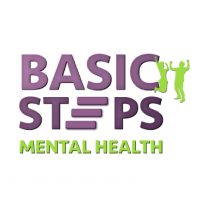

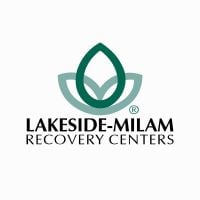
The facility name, logo and brand are the property and registered trademarks of Bowen Recovery Center, and are being used for identification and informational purposes only. Use of these names, logos and brands shall not imply endorsement. RehabNow.org is not affiliated with or sponsored by Bowen Recovery Center.


